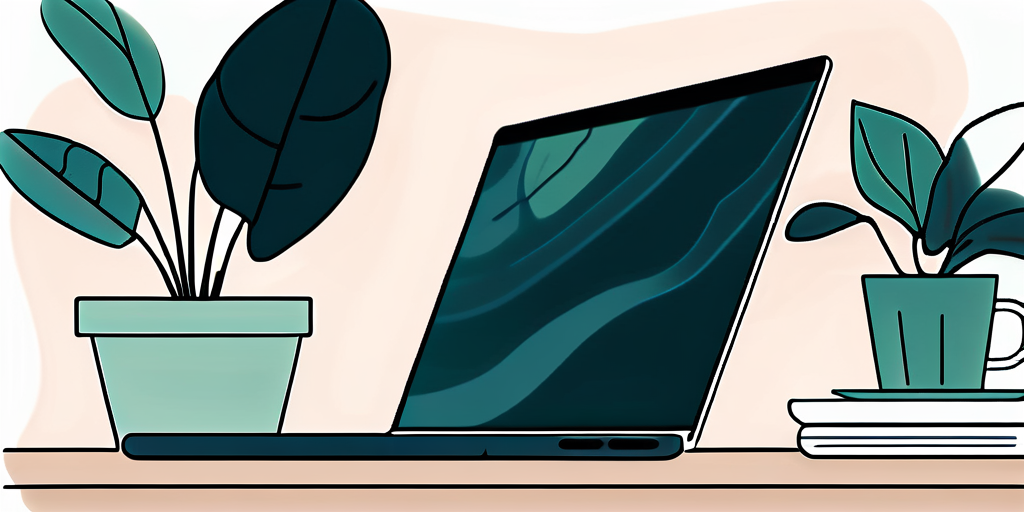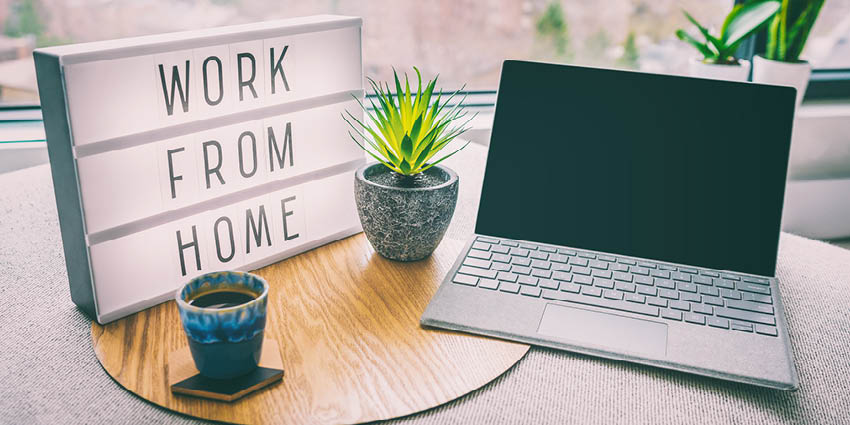The Ultimate Guide to Successful Work from Home Strategies

The Ultimate Guide to Successful Work from Home Strategies
In recent years, the concept of working from home has gained significant popularity. The rise of remote work has revolutionized the traditional office setup, allowing individuals to work from the comfort of their own homes. With numerous benefits and a few challenges, it is essential to understand the basics of working from home to ensure productivity and success. In this ultimate guide, we will explore the key strategies for a successful work from home experience.
Understanding the Basics of Working from Home
Working from home has become a global phenomenon, with more and more companies embracing the concept. This shift in traditional work dynamics has been driven by various factors such as advancements in technology, globalization, and changing employee expectations. The flexibility and freedom offered by working from home have attracted both employees and employers alike.
 Remote work has revolutionized the way we approach our professional lives. With the ability to work from the comfort of our own homes, we have the opportunity to create a work environment that suits our individual needs and preferences. Whether it's a cozy corner in the living room or a dedicated home office, the possibilities are endless.
Remote work has revolutionized the way we approach our professional lives. With the ability to work from the comfort of our own homes, we have the opportunity to create a work environment that suits our individual needs and preferences. Whether it's a cozy corner in the living room or a dedicated home office, the possibilities are endless.
The Rise of Remote Work
Advancements in technology have played a significant role in the rise of remote work. With the advent of high-speed internet, video conferencing tools, and project management software, collaborating with colleagues from different parts of the world has never been easier. This has allowed companies to tap into a global talent pool, breaking down geographical barriers and fostering diversity in the workplace.
Globalization has also contributed to the popularity of remote work. As businesses expand their operations internationally, the need for employees who can work across different time zones and cultural contexts has grown. Remote work enables companies to hire individuals from around the world, bringing diverse perspectives and skills to the table.
Furthermore, the expectations of employees have evolved over time. With the rise of the gig economy and the desire for a better work-life balance, many professionals are seeking flexible work arrangements. Working from home offers the freedom to manage one's own schedule, allowing individuals to prioritize their personal lives while still meeting professional obligations.
Benefits of Working from Home
Working from home offers numerous advantages that can enhance both work-life balance and productivity. Firstly, the elimination of the daily commute saves precious time and reduces stress levels. No longer having to endure rush hour traffic or crowded public transportation, employees can start their day feeling refreshed and ready to tackle their tasks.
Additionally, the flexible schedule allows individuals to tailor their work hours to their most productive times. Some people are early birds, while others are night owls. Working from home allows employees to align their work hours with their natural energy levels, ultimately increasing efficiency and output.
Moreover, the ability to create a personalized and comfortable workspace can significantly boost creativity and motivation. Whether it's a standing desk, a cozy armchair, or a calming color scheme, individuals have the freedom to design their workspace in a way that inspires them. This personal touch can have a positive impact on overall job satisfaction and well-being.
Common Challenges of Remote Work
While the benefits of working from home are abundant, it is crucial to acknowledge and address the challenges that may arise. One common challenge is potential distractions. Without the structure and supervision of a traditional office environment, it can be tempting to engage in non-work-related activities. However, establishing a dedicated workspace and setting clear boundaries can help minimize distractions and maintain focus.
Another challenge is difficulty in setting boundaries between work and personal life. When the office is just a few steps away, it can be challenging to disconnect and establish a healthy work-life balance. Creating a routine, setting specific work hours, and designating a separate space for work can help create a clear separation between professional and personal life.
Lastly, remote work can sometimes lead to feelings of isolation. Without the daily interactions and social connections that come with working in an office, employees may experience a sense of loneliness. However, there are various ways to combat this, such as scheduling regular virtual meetings, participating in online communities, and fostering open communication with colleagues.
Setting Up Your Home Office
Working from home has become increasingly popular, and setting up a home office is essential for creating a productive work environment. Whether you are a freelancer, a remote worker, or someone who occasionally works from home, having a well-designed and functional home office can greatly enhance your efficiency and focus. In this article, we will explore some key considerations for setting up your home office.
 ### Choosing the Right Location
### Choosing the Right Location
One of the first steps in setting up your home office is selecting the right location. It is important to choose a space that is separate from the common areas of your home to minimize distractions. Ideally, you want a dedicated room or a quiet corner where you can work without interruptions. Consider factors such as natural light, noise levels, and accessibility to power outlets and a stable internet connection. Natural light can boost your mood and productivity, while a quiet environment can help you concentrate better. Having easy access to power outlets and a reliable internet connection is crucial for seamless workflow.
Essential Home Office Equipment
Equipping your home office with the necessary tools and equipment is vital for a productive work environment. Start with investing in a comfortable ergonomic chair that provides proper support for your back and promotes good posture. A sturdy desk or workstation is also essential to ensure you have enough space for your computer, paperwork, and other work-related items. Proper lighting is another crucial aspect to consider, as it can reduce strain on your body and eyes. Opt for a combination of natural and artificial light sources to create a well-lit environment.
In addition to furniture and lighting, ensure that you have reliable technology in your home office. This includes a fast and secure internet connection, a computer or laptop that meets your work requirements, and any specific software or hardware needed for your job. Investing in high-quality equipment will not only enhance your productivity but also make your work more enjoyable.
Creating a Productive Environment
The environment in which you work can significantly impact your productivity and overall well-being. Keeping your home office organized and clutter-free is essential for a clear and focused mind. Invest in storage solutions such as shelves, drawers, and filing cabinets to keep your workspace tidy. A clean and organized environment can help reduce distractions and improve your ability to concentrate.
Customizing your home office to your liking is another way to create a productive environment. Add personal touches that inspire and motivate you. Consider incorporating plants, artwork, or other elements that create a positive and tranquil atmosphere. Studies have shown that having plants in the office can improve air quality and reduce stress levels. Surrounding yourself with things that bring you joy and inspiration can boost your creativity and overall job satisfaction.
In conclusion, setting up a home office requires thoughtful planning and consideration. Choosing the right location, equipping your office with essential tools and equipment, and creating a productive environment are all key elements to consider. By investing time and effort into designing your home office, you can create a space that promotes focus, productivity, and overall well-being.
Developing Effective Work from Home Habits
Working from home has become increasingly common, especially in today's digital age. While it offers flexibility and convenience, it also presents unique challenges. To ensure success and maintain a healthy work-life balance, it is crucial to develop effective work from home habits. This article will explore some key strategies to help you establish a routine, set boundaries, and stay motivated and productive.
Establishing a Routine
One of the keys to success when working from home is establishing a consistent routine. While the freedom to work at any time may seem appealing, it is essential to set specific working hours and follow a structured schedule that aligns with your most productive times. By doing so, you can optimize your energy levels and focus during these periods, leading to increased efficiency and output.
In addition to setting working hours, it is important to plan breaks and allocate time for exercise, meals, and personal activities. Taking regular breaks throughout the day not only helps prevent burnout but also enhances creativity and overall well-being. Use these breaks to stretch, go for a walk, or engage in activities that rejuvenate your mind and body.
Setting Boundaries Between Work and Personal Life
Creating a clear distinction between work and personal life is crucial to avoid burnout and maintain overall well-being. When working from home, it can be tempting to blur the lines between work and leisure activities. However, by establishing boundaries, you can ensure that you have dedicated time for both work and personal pursuits.
One effective way to set boundaries is by defining separate physical spaces for work and leisure activities. Designate a specific area in your home as your workspace, ideally away from distractions. This will help create a mental separation between work and personal life, allowing you to focus and be more productive during working hours.
It is also important to inform family members or roommates of your working hours and the importance of uninterrupted focus. By communicating your schedule and expectations, you can minimize distractions and interruptions, enabling you to maintain a productive work environment.
Lastly, remember to switch off from work-related tasks and take time to relax and recharge outside of working hours. Engage in activities that bring you joy and help you unwind. Whether it's spending time with loved ones, pursuing hobbies, or simply enjoying some quiet time, prioritizing self-care is essential for long-term success and well-being.
Staying Motivated and Productive
Sustaining motivation and productivity can be challenging when working from home. Without the structure and social interactions of a traditional office setting, it is important to implement strategies to stay focused and engaged.
One effective strategy is to create to-do lists and prioritize tasks. Breaking down your workload into smaller, manageable steps can make it feel less overwhelming and increase your sense of accomplishment as you complete each task. Consider using productivity tools or apps to help you stay organized and track your progress.
In addition to setting goals, it is important to reward yourself upon completion. Celebrate your achievements, no matter how small, as this can help maintain motivation and boost morale. Treat yourself to something you enjoy, whether it's a favorite snack, a short break to watch a video, or a quick chat with a friend.
Furthermore, staying connected with colleagues is crucial when working remotely. Regular virtual check-ins can foster a sense of accountability and camaraderie. Schedule video conferences or team meetings to discuss projects, share ideas, and provide support to one another. This not only helps maintain productivity but also combats feelings of isolation that can arise from working alone.
In conclusion, developing effective work from home habits is essential for success and well-being. By establishing a routine, setting boundaries, and staying motivated and productive, you can navigate the challenges of remote work and create a fulfilling and balanced work-life experience.
Mastering Communication and Collaboration
Utilizing Digital Tools for Communication
The success of remote work relies heavily on effective communication. Utilize digital tools and platforms such as video conferencing, instant messaging, and project management software to collaborate with colleagues and stay connected with your team. Regularly communicate progress, share updates, and ensure everyone is on the same page.
 ### Building Strong Relationships with Remote Teams
### Building Strong Relationships with Remote Teams
Building strong relationships with your remote colleagues is essential for a harmonious and productive work environment. Interact regularly, not just on work-related matters, but also on a personal level. Engage in virtual team-building activities, share common interests, and celebrate achievements together. Foster open and transparent communication, creating a supportive virtual community.
Overcoming Communication Barriers in Remote Work
The virtual nature of remote work can sometimes create communication barriers. Misunderstandings may occur due to the absence of non-verbal cues. Be proactive in clarifying expectations, ask questions when unsure, and practice active listening. Choose appropriate communication channels depending on the nature and urgency of the matter to ensure effective and efficient collaboration.
By mastering the basics of working from home, setting up an efficient home office, developing effective work habits, and harnessing communication and collaboration skills, you can thrive in your remote work environment. Implement these strategies, adapt them to your unique circumstances, and embrace the freedom and flexibility that working from home provides. With dedication and perseverance, you can achieve success and enjoy a fulfilling work-life balance.


